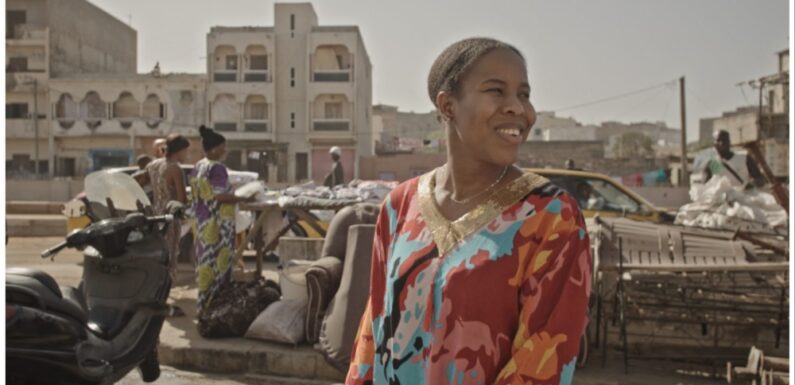
The lineup for Docu Talents From the East – a showcase of standout documentary films from Central and Eastern Europe that are in post-production – has been unveiled.
Eight documentary projects will be presented on Aug. 13 at Sarajevo Film Festival. The event is part of CineLink Industry Day, the festival’s program for film and TV professionals.
The most promising project will receive the Docu Talent Award in cooperation with Current Time TV. The award is accompanied by a cash prize of $5,000. The DAFilms.com Distribution Award will cover services worth €3,000 ($3,300), including an international VOD release on DAFilms.com for two years. The awards ceremony will take place on Aug. 13 at Sarajevo Producers’ Hub.
Marek Hovorka, director of the Ji.hlava Documentary Film Festival, which organizes and curates Docu Talents, said: “The protagonists of the presented films are exploring their family roots and cultural background, striving for a fairer and more open world, and trying to secure their own place in it – often in spite of global and political influences. The films in progress, in which they appear, thus closely and often mercilessly depict the world in which we live and which we are shaping together.”
Below is the selection for Docu Talents:

“80 Angry Journalists” (Hungary, Germany)
Directors: András Földes and Anna Kis
Producer: Loránd Balázs Imre
Production Company: filmDOUGH
Viktor Orbán’s government seizes Hungary’s top independent media outlet, Index.hu. Journalists fight back by resigning and forming a new entity but face familiar toxicity. Can healthy communities survive in a corrupt system? Possible answers are revealed through the lives of three ex-Index.hu employees as they navigate challenges.
“An Almost Perfect Family” (Romania)
Director: Tudor Platon
Producers: Carla Fotea and Ada Solomon
Production Company: microFILM
After 30 years of marriage, Tudor Platon’s parents announced that they were separating. In the midst of this painful process, Platon fell in love and started a family. The film explores the different shapes that love can take between parents and children and children who become parents.
“Chronicle” (Slovakia, Czech Republic)
Director: Martin Kollar
Producers: Ivan Ostrochovský, Albert Malinovský and Katarína Tomková
Production company: Punkchart Films
A land of people wakes up from its deep winter sleep. As it looks around, an incomprehensible world of absurdities slowly unfolds, yet they feel familiar and close in their sounds, rhythms, colors. The stakes get higher and the suspense grows, while the land learns to accept and find meaning in what seems random, eventually discovering consolation in how life always brings us to understanding the past only as we move forward and change.
“Dreaming of El Dorado” (Croatia)
Director: Alan Stanković
Producer: Boris Veličan
Production Company: Event Film Ltd.
Fatima is one of those women who can survive just about anything life puts in their way. Her father left her before she was born, and she managed to escape the genital mutilation in the Mandinka tribe and go to the capital, Dakar. Her mother also left in search of work. She starts her own business, learns three more foreign languages and marries a foreigner. The documentary follows Fatima’s journey to Croatia.

“Havel Speaking, Can You Hear Me?” (Czech Republic)
Director: Petr Jančárek
Producer: Jiří Konečný
Production Company: Endorfilm
In 2009, playwright, former dissident and Czech president Václav Havel suggested to director Petr Jančárek that he “film the rest of his life.” Their almost three-year-long collaboration, which ended with Havel’s death, was characterized by complete openness, Havel’s trust in the director and Jančárek’s responsibility toward his protagonist.
“A Picture to Remember” (Ukraine, France, Germany)
Director: Olga Chernykh
Producer: Regina Maryanovska-Davidzon
Production Company: Real Pictures
An essayistic account of a family’s long journey through the Ukraine-Russia War. It chronicles the search for a way to handle terrible and recurring losses experienced by three generations of Ukrainian women – those of the director, her mother, and of her grandmother.
“Root” (Bosnia and Herzegovina, Turkey, U.S.)
Director: Deniz Čelebić
Producer: Deniz Čelebić
Production Company: Kapiya Production
“Root” is the diary of a woman who carries ancestral memory of displacement from home because of the war. It shows how she becomes rooted through the garden she cultivates. The garden enables the woman to remember her primal bond with the land.

“Runa” (Poland)
Director: Agnieszka Zwiefka
Producers: Zofia Kujawska and Agnieszka Zwiefka
Production Company: Chilli Productions
When her mother freezes to death during the refugee crisis in the forest on Europe’s Eastern frontier, 16-year-old Runa has to quickly grow up and take care of her four younger brothers and helpless, depressed father as the family deals with trauma. What Runa fears the most is going back to Iraq, where Kurds are an ISIS target. She wants to live like her new European friends and become a lawyer. Her only escape from everyday problems is a sketchbook with drawings that express what she feels. Runa is a partially animated documentary about coming-of-age in the shadow of a global refugee crisis.
Read More About:
Source: Read Full Article